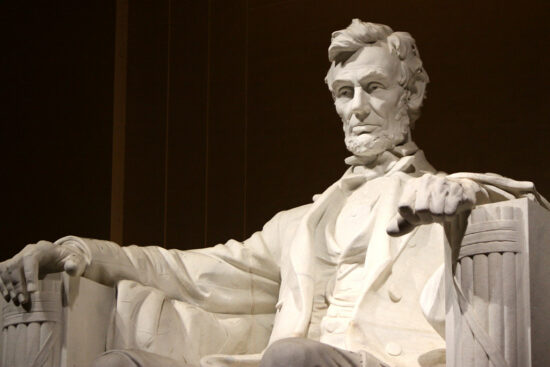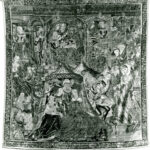Abraham Lincoln, widely regarded as one of the greatest American presidents, was born on February 12, 1809, in a one-room log cabin in Hardin County, Kentucky. He was the son of Thomas Lincoln and Nancy Hanks Lincoln. Lincoln’s early life was marked by hardship and poverty, and his family moved several times during his childhood. His mother died when he was just nine years old, leaving a profound impact on him.
Despite the challenges he faced, Lincoln had a thirst for knowledge and a strong desire to improve his circumstances. He taught himself to read and write, relying on borrowed books and newspapers. Lincoln’s determination and intellectual curiosity led him to become a self-educated individual, which would greatly shape his future.
In 1830, Lincoln moved with his family to Illinois, where he started his professional life as a storekeeper and postmaster. It was during this time that he developed an interest in politics and began his political career as a member of the Whig Party. He also studied law and was admitted to the bar in 1836. Lincoln’s legal career flourished, and he gained a reputation for his honesty and integrity.
In 1842, Lincoln married Mary Todd, and the couple had four sons. Tragically, only one of their children survived into adulthood. Lincoln’s personal life was not without difficulties, as he and his wife endured the loss of their children and faced other personal challenges.
Lincoln’s political career continued to rise, and he became involved in the newly formed Republican Party. In 1858, he gained national attention with his debates against Stephen A. Douglas during the Illinois senatorial campaign. Although he lost the election, Lincoln’s eloquence and logical arguments helped solidify his position as a prominent figure in the Republican Party.
In 1860, Lincoln successfully secured the Republican nomination for the presidency and went on to win the general election. He assumed office on March 4, 1861, becoming the 16th President of the United States. However, his presidency began during one of the most tumultuous periods in American history—the secession crisis and the onset of the American Civil War.
During his presidency, Lincoln faced the daunting task of preserving the Union and abolishing slavery. His leadership during the Civil War was marked by a series of significant decisions and policies. He issued the Emancipation Proclamation in 1862, which declared that all slaves in Confederate territory were to be set free. This landmark executive order transformed the war’s purpose from solely preserving the Union to also seeking the end of slavery.
On November 19, 1863, Lincoln delivered the Gettysburg Address, a speech that encapsulated the ideals of freedom, equality, and democracy. His powerful words affirmed the nation’s commitment to preserving the Union and honoring those who had sacrificed their lives in the Civil War.
As the war ended, Lincoln turned his attention to the task of reconstruction, seeking to reunite the divided nation and heal the wounds of the war. However, his efforts were cut short when he was assassinated on April 14, 1865, by John Wilkes Booth at Ford’s Theatre in Washington, D.C.. His untimely death was a great loss for the nation.
Abraham Lincoln’s legacy as a president and leader is profound. His unwavering commitment to preserving the Union and his firm stance against slavery solidified his place in history as a champion of justice and equality. Lincoln’s eloquence, humility, and moral compass continue to inspire generations of Americans.
Sources:
Abraham Lincoln: Facts, Birthday & Assassination | HISTORY
Abraham Lincoln | The White House
The Emancipation Proclamation | National Archives
Gettysburg Address | Exhibitions – Library of Congress (loc.gov)







